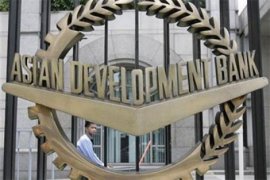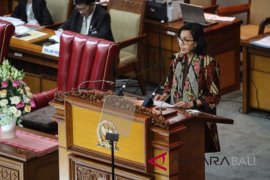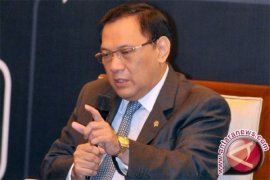Yogyakarta (Antara Bali) - Indonesia is estimated to post a positive growth of more than 5 percent in its macro economy in 2016, an academician has said.
Ahmad Ma'ruf, a lecturer of the Muhammadiyah University here, said there was no contractive economic fluctuation that caused a setback in development in 2016.
"The positive growth was attributable to development performance in 2016 unhampered by contractive economic fluctuation," Ma'ruf said at a discussion on "Reflection of Indonesia's economy 2016," here on Friday.
However, the positive growth could not yet help much in improving the people's welfare, he said, adding, prosperity indicator is still in a vulnerable zone that serious addressing is necessary.
"The poverty rate, though declining, is still more than 10 percent with around 28 million people living below the poverty line. The economic gap is narrowing but the Gini ratio is still more than 0.3 percent," he said.
He said limited fiscal capacity with deficit of 2.4 percent of the GDP left little room for development maneuver to improve the public welfare.
The state resources are drained for bureaucratic cost and base level public investment, he said.
Worse still is that the corruption is still rampant with fiscal inefficiency, he said.
The condition reduces the coverage of program to improve the public welfare especially in rural areas outside Java, he added.
Conceptually the selection of four basic strategies in a bid to accelerate eradication of poverty has been right, he said.
The four strategies are improvement of program of social protection, widening access of poor people to basic services, empowerment of the people and inclusive development.
"In 2016, implementation of the strategies is dominant in social program and access to basic services, while empowerment of the people and inclusive development are still minimum," Ahmad Ma'ruf said.
He said program implementation is still inefficient by unprofessional field players, who are more politically motivated rife with collusion and nepotism.
"In addition, there are still many empowerment programs carried out as a project," the deputy chairman of the Community Empowerment Council of the Central Executive Board of Muhammadiyah said. (WDY)






